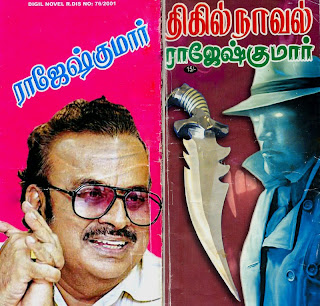

During the college days, he found his writing skills accidentally and later found that it was exciting and then it became his passion and he continued to explore in that domain. He then completed Bachelor of Education and qualified to become a teacher.

Struggling parents supported him to become a graduate in Botany. The book is being widely circulated in western Tamil Nadu, where Namakkal, Coimbatore, Tirupur, Karur, Erode and Salem districts are referred to as the "Textile Valley of India".Born as K R Rajagopal on the 20th of March 1947 hailing from Coimbatore from a very simple family that couldn’t make the both ends meet financially at the end of the day. "Mill managements have promised lump sum payment at the end of three years of employment, forcing young girls to work without the option of quitting," Murugavel said. Partly anecdotal, the book captures the change in the industry from being a "well-paying, lifelong" employment option to the "camp coolie system" of bonded labour.

"I always wondered why girls went to work in these sweat shops." Everyone knows someone connected to the mills and everyone knows about the exploitation," Murugavel told the Thomson Reuters Foundation in a phone interview. "When you grow up in this region, you cannot ignore the industry. Murugavel grew up watching the growth of "exploitative" factories that dot Coimbatore, where he studied and now practices law. His book, written in Tamil, opens with the police investigating the circumstances of the death of an activist near a spinning mill.Īs the witnesses are called and suspects interviewed, each chapter of the book highlights the abuse workers face, the low wages and the long working hours spent weaving and stitching for global brands. When lawyer Ira Murugavel sat down to write " Sempulam" (Desert Land), he thought of some of his clients - workers fighting for their wages.


 0 kommentar(er)
0 kommentar(er)
